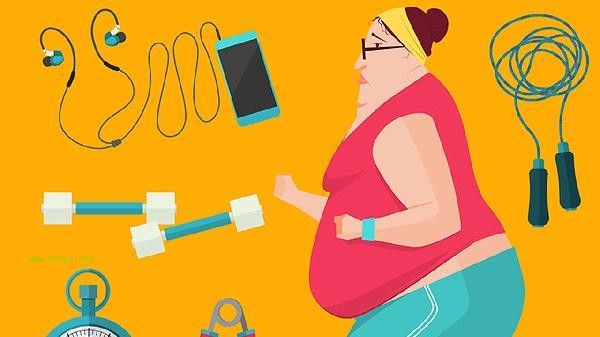Not eating at night during weight loss is not an absolute taboo, but it may be affected by factors such as excess calories, disrupted metabolic rhythms, increased blood sugar fluctuations, increased digestive burden, and nutritional imbalances. Scientific weight loss requires adjusting dinner strategies based on individual circumstances.

1. Excess calories:
Decreased nighttime activity leads to a decrease in basal metabolic rate, and excessive calorie intake during dinner is easily converted into fat storage. The human body's insulin sensitivity decreases during sleep, and excess carbohydrates are more easily converted into fat deposits. It is recommended to control the total calorie intake of dinner at 400-500 calories and prioritize high protein, low GI foods.
2. Metabolic rhythm:
The human biological clock affects the secretion cycle of digestive enzymes, and pancreatic and liver function is relatively weakened at night. Research shows that eating after 8 pm can delay melatonin secretion and disrupt the circadian rhythm of fat breakdown. Maintaining a 16:8 light fasting mode helps maintain metabolic stability.
3. Blood sugar fluctuations:

Insulin resistance is evident at night, and a high carbon water dinner can easily cause sudden increases and decreases in blood sugar. This fluctuation can stimulate the secretion of ghrelin and increase the risk of binge eating the next day. Choosing low sugar foods such as quinoa and broccoli can stabilize the nighttime blood sugar curve. 4. Digestive burden: Eating 3 hours before bedtime may cause gastroesophageal reflux and affect the quality of deep sleep. Interruption of sleep during the peak period of growth hormone secretion can reduce the efficiency of fat breakdown. A combination of light and easily digestible protein and dietary fiber is a better choice. 5. Nutritional imbalance: Skipping dinner completely may lead to insufficient nutrient intake throughout the day. The deficiency of key trace elements such as vitamin B and magnesium can hinder energy metabolism. It is recommended to keep an appropriate amount of dinner to ensure the intake of high-quality protein and essential fatty acids. Scientific weight loss should focus on maintaining a balance of calories throughout the day rather than simply fasting from dinner. It is recommended to bring dinner time 3-4 hours before bedtime, control the proportion of carbohydrates below 30%, and increase green leafy vegetables and high-quality protein. Can be paired with 30 minutes of low-intensity exercise such as walking to promote digestion. Special groups such as diabetes patients need to develop personalized programs under the guidance of nutritionists. Long term healthy weight loss requires the establishment of a sustainable dietary pattern, and extreme dieting may actually trigger compensatory metabolic decline.





Comments (0)
Leave a Comment
No comments yet
Be the first to share your thoughts!